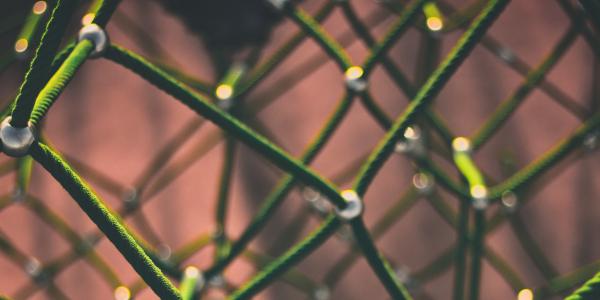Fraser Stoddart, Nobel Laureate and the Board of Trustees Professor of Chemistry at Northwestern University, will deliver the 2018 Weissman Lectures this October at Washington University in St. Louis (WashU), with a public lecture on Thursday, Oct. 4th held in Graham Memorial Chapel and a chemistry-specific lecture on Friday, Oct. 5th in McMillan Hall, Room G052.
The public lecture, “Engines Through the Ages,” will begin at 4:00 pm, followed by a general Q&A session from 5:15 to 6:15 pm. The lecture is sponsored by the Department of Chemistry in Arts & Sciences and is free and open to the general public.

“Engines Through the Ages” will journey into the mechanical innovations realized during the early and mid-20th century, followed by discussions revolving around a new type of bonding in molecules consisting of mechanical linkages pioneered by Stoddart and fellow Nobel Laureate Jean-Pierre Sauvage, which they used to control large amplitude motions in nanoscale mechanically interlocked molecules, such as catenanes and rotaxanes (see figure below). A blueprint for constructing molecular shuttles, switches, and machines will be stressed, setting the stage for the production of artificial (synthetic) molecular pumps capable of storing multiple highly charged molecules.
Born in Edinburgh, Scotland during World War II, Stoddart learned the value of hard work growing up on Edgelaw Farm about a dozen miles south of Edinburgh. He affectionately refers to this stage as the “University of Life” since this is where he learned the value of hard work. From there he attended the University of Edinburgh, where he attained his BSc (1964) and PhD (1966) degrees in Chemistry. In 1967, he went to Queen’s University (Canada) as a National Research Council Postdoctoral Fellow, then, in 1970, to Sheffield University (United Kingdom) as an Imperial Chemical Industries (ICI) Research Fellow, before joining the academic staff as a Lecturer in Chemistry. Following a sabbatical (1978-81) at the ICI Corporate Laboratory in Runcorn, he returned to Sheffield where he was promoted to a Readership in 1982. He was awarded a DSc degree by Edinburgh in 1980 for his research into stereochemistry beyond the molecule.

In 1990, he took up the Chair of Organic Chemistry at Birmingham University and was Head of the School of Chemistry there (1993-97) before moving to UCLA as the Saul Winstein Professor of Chemistry in 1997. In 2003, he was appointed the Director of the California NanoSystems Institute and assumed the Fred Kavli Chair of NanoSystems Sciences. Later, in 2007, his pioneering research into mechanically interlocked molecules and molecular nanotechnology resulted in him receiving Knighthood from Queen Elizabeth II. At the beginning of 2008, he joined the faculty at Northwestern University as a Board of Trustees Professor of Chemistry, where his primary research group resides, although he now holds a part-time appointment at the University of New South Wales in Sydney, Australia.
His journey has taken him from the farms of Edinburgh to the Great Lakes of the US and Canada, with stops along the way to meet President Obama in the White House, followed by landing in Stockholm with fellow 2016 Chemistry Nobel Laureates and ‘Molecular Machinists’, Bernard Feringa and Jean-Pierre Sauvage. Now, WashU has the privilege of welcoming Stoddart to St. Louis this fall, beginning with his public lecture in regal Graham Memorial Chapel.
This lecture series honors Samuel I. Weissman, a WashU faculty member from 1946 until his death in 2007. Weissman was recruited to Los Alamos in 1943, where he worked on the Manhattan project that ultimately led to the construction of the first two atomic bombs, an accomplishment for which he had mixed feelings and that had a monumental effect on his life. He was elected to the American Academy of Arts and Sciences in 1963 and to the US National Academy of Sciences in 1966. He was beloved by his colleagues and students, and remained a fundamental scientist to the end, conducting creative research until virtually his last days at the age of 95.
For more information, contact Mary Stewart (marystewart@wustl.edu; 314-935-6593) or host Professor Jonathan Barnes (jcbarnes@wustl.edu).




